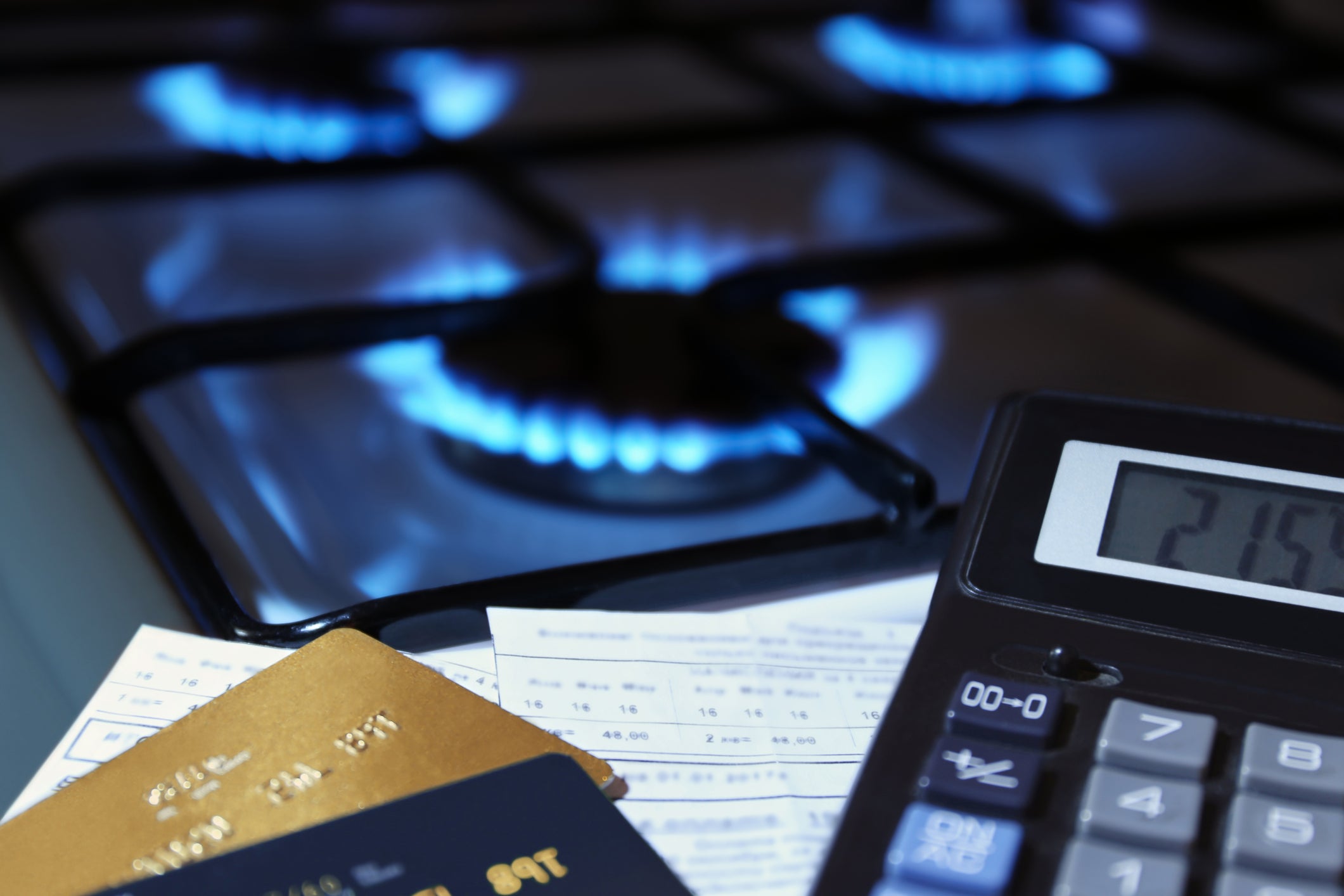‘Vulnerable households must be protected’: The people bearing the brunt of the energy crisis
As Avro Energy and Green become the sixth gas and electricity companies to go bust in recent weeks, Saman Javed speaks to those left without a utility supplier


Your support helps us to tell the story
From reproductive rights to climate change to Big Tech, The Independent is on the ground when the story is developing. Whether it's investigating the financials of Elon Musk's pro-Trump PAC or producing our latest documentary, 'The A Word', which shines a light on the American women fighting for reproductive rights, we know how important it is to parse out the facts from the messaging.
At such a critical moment in US history, we need reporters on the ground. Your donation allows us to keep sending journalists to speak to both sides of the story.
The Independent is trusted by Americans across the entire political spectrum. And unlike many other quality news outlets, we choose not to lock Americans out of our reporting and analysis with paywalls. We believe quality journalism should be available to everyone, paid for by those who can afford it.
Your support makes all the difference.Natalie Jesudason, 32, found out her gas and electricity supplier, Avro Energy, had collapsed when watching the morning news. She had not received any correspondence from the company, no words of warning that trouble was on the horizon, and had even had her latest direct debit payment taken from her bank account the day before.
According to the latest figures from Ofgem, the UK’s energy regulator, Jesudason is one of Avro Energy’s 580,000 domestic customers who now find themselves without a supplier. But this isn’t a scenario isolated to one company. In recent weeks, a total of six energy suppliers have gone bust due to a sharp rise in gas prices. These include PfP Energy, MoneyPlus energy, Utility Point, People’s Energy, Avro Energy and Green. While these firms are small in comparison to the likes of British Gas, E.ON and Scottish Power, between them they served around 1.5 million customers.
The current rise in gas prices in the UK is a reflection of high gas prices globally. A cold winter in 2020 depleted stores, while demand for gas has risen as economies across the world reopen following the Covid-19 pandemic. Green has blamed “unprecedented market conditions and regulatory failings” for its collapse. In a letter to its customers, it said wholesale energy prices have risen above the market price cap set by Ofgem and “means that Green, like all other energy suppliers, [was] selling energy to customers at a loss.”

Those households who were with one of the collapsed companies will soon be reallocated to a new supplier by Ofgem, through its “supplier of last resort process”. While their new contracts will be covered by an energy price cap, set by the regulator, they could still be more expensive. This is because suppliers are having to buy more energy at short notice to accommodate new customers, so may charge more to cover these costs.
Like thousands of other Avro customers, Jesudason is bracing herself for the possibility that she could soon be paying much higher prices for her utilities than she was previously. “We had been with Avro since March. We thought we got a great deal because everyone was talking about all these price hikes to gas bills and we were fixed for 12 months, which obviously isn’t the case anymore,” she tells The Independent. “I know the prices are going to be higher and unfortunately, we are in a situation where we are going to have to pay more.”
Iit’s just really unfortunate because there are lots of people who will struggle to decide whether to eat or heat their house this coming winter
Another Avro Energy customer, 28-year-old Charlie Turner, from The Wirral, feels left in the dark after the company deleted their social media accounts and the website no longer allows customers to access their latest statements. Turner believes he had £80 credit on his account before the company collapsed, while Jesudason had £300. Although he has yet to be offered a new contract via Ofgem, his own research shows that he could soon be paying twice as much for his utilities as he was last year.
While Turner and his partner were paying £77 a month to Avro, comparison websites show that their average usage could cost them £154 a month with a new supplier. “We’re lucky we can afford that increase, but it’s just really unfortunate because there are lots of people who will struggle to decide whether to eat or heat their house this coming winter,” he says.
Like Jesudason, 31-year-old Victoria Measures also shopped around before joining Avro last month. “I switched from E.ON because our contract had ended and they were going to put me on a much higher tariff, so I took out a fixed-rate deal with Avro for 12 months,” she says. Earlier this month all of the major energy suppliers, including British Gas and E.ON, announced price hikes from 1 October. It comes after Ofgem recently increased the maximum price that suppliers can charge customers. For those on tariffs making monthly payments, the maximum price will increase by £139 from £1,138 to £1,277. For prepayment customers, it will increase by £153 from £1,156 to £1,309.
Now, with the closure of Avro, Measures feels out of options. “I’m quite concerned because it seems to be a lot of small companies that have gone bust, and it seems like we’re going to be forced to use one of the big companies which are more expensive, but we haven't got much choice in the matter,” she says.

While all three of the households The Independent spoke to are fortunate in that they will be able to cover the costs of a higher utility bill, the change will undoubtedly affect those from lower-income households. Additionally, the government has announced that the temporary £20 increase to universal credit payments – introduced during the pandemic – will end on 6 October.
Coupled with the increase in gas prices, this means that some households could find themselves £80 down each month while grappling with a higher energy bill. One poverty research charity, the Joseph Rowntree Foundation, has warned that this could add an extra £710 in costs per year for poorer households.
The effects of this could be widespread. Earlier this year, a StepChange poll found that 4.3 million people were behind on household bills, of which three million had experienced a fall in income since the start of the pandemic. Of those struggling, 35 per cent were behind on an electricity bill, and 25 per cent on a gas bill. “This is before the significant rise in costs we are starting to see now. Any further rise in price, particularly in combination with the £20 weekly cut to universal credit, threatens to push households into more difficulty and overwhelm those already struggling to pay their energy bills,” Ed McDonagh, senior public policy advocate at StepChange says.
National Energy Action (NEA), a charity that works to eradicate fuel poverty, has also voiced concerns about Ofgem’s “supplier of Last Resort” process. The charity’s CEO, Adam Scorer, says those with debt repayment plans, prepayment meters or those eligible for the government’s Warm Home Discount scheme – which gives households up to £140 off their electricity bill – “may fall through the gaps”.
Any further rise in price, particularly in combination with the £20 weekly cut to universal credit, threatens to push households into more difficulty and overwhelm those already struggling to pay their energy bills
This is because customers who are currently on a debt repayment plan may have to work out a new plan with their new suppliers. Additionally, the Warm Homes discount is offered by suppliers on a first come first served basis, so customers who newly join an energy company may no longer have access to it. Finally, NEA said some prepayment meter customers may find themselves with a meter that no longer works with their new supplier’s top-up system.
“Low-income customers on prepayment meters are at particular risk and need the greatest level of protection if their current supplier fails. There is a particular risk that people on prepayment meters will not be able to afford to top up and will ‘self disconnect‘. With other suppliers at risk of failing, the scale of the issue looks set to increase and low income and vulnerable households must be protected,” Scorer says.
Simon James, an energy consultant from The Utility Market Experts says the current crisis is very difficult “even for the most energy-savvy people” who regularly switch to get the best deal, as there are now very few options to choose from. “People would be best advised to keep checking the switching sites until better value fixed deals become available.” In the meantime, he says, there is little to do but to sit on the rate a new supplier offers.
But for some, waiting for better deals to come isn’t a viable option. As Anna Stevenson, a welfare benefits specialist at Turn2Us, a charity that helps those living in poverty, tells The Independent, “people on low incomes simply do not have the financial resilience to absorb the additional costs of energy price hikes”.
Earlier this week, a single parent and mother of one, Rachel, told BBC Newsnight that the increase in energy prices will force her to have to choose between heating her home and having enough food in the winter months. Rachel, who is in employment and also on Universal Credit, said her bills are “already at breaking point”. “We’re going to have to heat the house because we can’t be cold, so we are going to have to basically cut back on food, [and] you can’t really do that because you’re hungry,” she said.
Now, charities including Turn2Us, StepChange and NEA are calling on the government to help those most vulnerable. “Too many people will have to choose between heating and eating this winter and urgent action is needed,” Stevenson adds.
Join our commenting forum
Join thought-provoking conversations, follow other Independent readers and see their replies
Comments